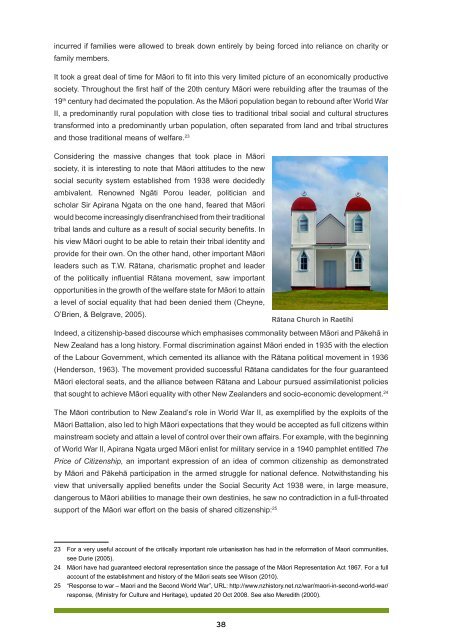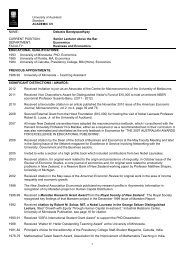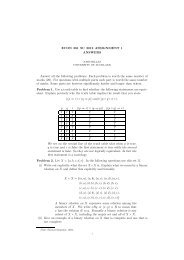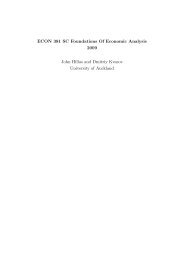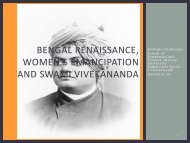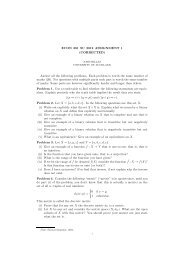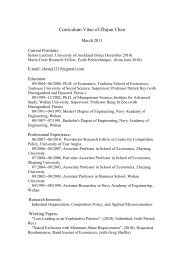Left Further Behind - Child Poverty Action Group
Left Further Behind - Child Poverty Action Group
Left Further Behind - Child Poverty Action Group
Create successful ePaper yourself
Turn your PDF publications into a flip-book with our unique Google optimized e-Paper software.
incurred if families were allowed to break down entirely by being forced into reliance on charity or<br />
family members.<br />
It took a great deal of time for Māori to fit into this very limited picture of an economically productive<br />
society. Throughout the first half of the 20th century Māori were rebuilding after the traumas of the<br />
19 th century had decimated the population. As the Māori population began to rebound after World War<br />
II, a predominantly rural population with close ties to traditional tribal social and cultural structures<br />
transformed into a predominantly urban population, often separated from land and tribal structures<br />
and those traditional means of welfare. 23<br />
Considering the massive changes that took place in Māori<br />
society, it is interesting to note that Māori attitudes to the new<br />
social security system established from 1938 were decidedly<br />
ambivalent. Renowned Ngāti Porou leader, politician and<br />
scholar Sir Apirana Ngata on the one hand, feared that Māori<br />
would become increasingly disenfranchised from their traditional<br />
tribal lands and culture as a result of social security benefits. In<br />
his view Māori ought to be able to retain their tribal identity and<br />
provide for their own. On the other hand, other important Māori<br />
leaders such as T.W. Rātana, charismatic prophet and leader<br />
of the politically influential Rātana movement, saw important<br />
opportunities in the growth of the welfare state for Māori to attain<br />
a level of social equality that had been denied them (Cheyne,<br />
O’Brien, & Belgrave, 2005).<br />
Rātana Church in Raetihi<br />
Indeed, a citizenship-based discourse which emphasises commonality between Māori and Pākehā in<br />
New Zealand has a long history. Formal discrimination against Māori ended in 1935 with the election<br />
of the Labour Government, which cemented its alliance with the Rātana political movement in 1936<br />
(Henderson, 1963). The movement provided successful Rātana candidates for the four guaranteed<br />
Māori electoral seats, and the alliance between Rātana and Labour pursued assimilationist policies<br />
that sought to achieve Māori equality with other New Zealanders and socio-economic development. 24<br />
The Māori contribution to New Zealand’s role in World War II, as exemplified by the exploits of the<br />
Māori Battalion, also led to high Māori expectations that they would be accepted as full citizens within<br />
mainstream society and attain a level of control over their own affairs. For example, with the beginning<br />
of World War II, Apirana Ngata urged Māori enlist for military service in a 1940 pamphlet entitled The<br />
Price of Citizenship, an important expression of an idea of common citizenship as demonstrated<br />
by Māori and Pākehā participation in the armed struggle for national defence. Notwithstanding his<br />
view that universally applied benefits under the Social Security Act 1938 were, in large measure,<br />
dangerous to Māori abilities to manage their own destinies, he saw no contradiction in a full-throated<br />
support of the Māori war effort on the basis of shared citizenship: 25<br />
23 For a very useful account of the critically important role urbanisation has had in the reformation of Maori communities,<br />
see Durie (2005).<br />
24 Māori have had guaranteed electoral representation since the passage of the Māori Representation Act 1867. For a full<br />
account of the establishment and history of the Māori seats see Wilson (2010).<br />
25 “Response to war – Maori and the Second World War”, URL: http://www.nzhistory.net.nz/war/maori-in-second-world-war/<br />
response, (Ministry for Culture and Heritage), updated 20 Oct 2008. See also Meredith (2000).<br />
38


